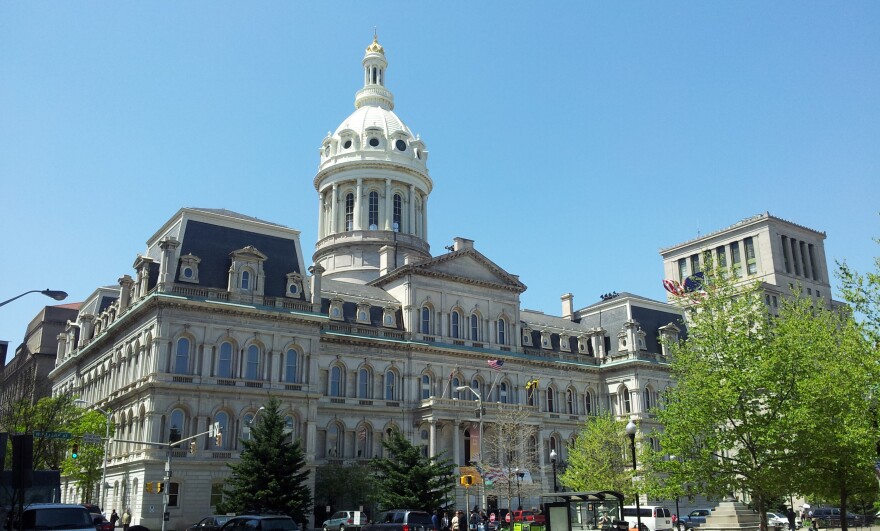Baltimore officials released what they called a “modest growth budget” for the coming fiscal year Wednesday. It maintains city services and does not raise taxes, while accounting for the ongoing impact of the COVID-19 pandemic on city coffers
“This is where we are based on the economy and the slowdown from the pandemic and the extended period of time it will take for recovery,” Finance Director Henry Raymond said, noting that some revenues came in shy of reduced projections.
The $3.6 billion proposed budget for fiscal year 2022 is slightly less than that of fiscal 2021. It includes no layoffs or furloughs for city workers, unlike last year’s. The budget plan is the first from Mayor Brandon Scott. Raymond said the proposal was written assuming the city will not see any additional pandemic-related shutdowns.
Scott, both as mayor and in his former role as City Council President, has spoken about his desire to reduce the Baltimore Police Budget and divert funds to other services, such as addiction treatment. The Democrat’s proposed budget would increase BPD’s annual budget by $28 million. Raymond said the 5% increase is due to benefits and workers’ compensation.
The plan, developed over the winter, does not include money from last month’s American Rescue Plan Act, which granted Baltimore City $670 million. Scott has touted three priorities for the funds: putting residents back to work, aiding local businesses and investing “in people and places that have been left out due to inequitable policies of the past.”
Baltimore has seen less traffic and tourism since last spring, when many companies pivoted to remote operations amid stay-at-home orders. That change is reflected in the proposed budget: the city projects to accrue $13.9 million in parking revenue in fiscal year 2022, half as much as pre-pandemic numbers.
Raymond said some revenue streams, parking in particular, may never bounce back to pre-pandemic levels should remote work broadly continue.
“Depending on how quickly the commercial sector rebounds and when the majority of employees return to work working in office spaces, that will determine the recovery,” he said. The finance department has projected that “we may not return to the new normal” until the end of FY 2024, meaning the end of June 2024, he added.
Meanwhile, revenue from traffic violations caught on camera has increased: city officials expect $21 million from red light and speed camera fines in FY 2022, up from the $14 million they expected in 2021.
“This is driven by motorist behavior, no pun intended,” Raymond said. “With the pandemic, there are fewer people driving, but because the roads are less congested, those that are driving are driving faster and incurring more violations.”
The plan includes a 25 cent increase in 911 caller fees to fund the city’s conversion to new technology for the emergency service, Raymond said.
The proposed budget reflects continued pandemic spending: About $52 million of CARES and FEMA funding are slated to support COVID-19 response, while $10 million that Raymond said may be reimbursed by FEMA is budgeted for mass vaccination sites. The Health Department’s budget rose by nearly $36 million, an increase of more than 200%, thanks to federal relief funds, Raymond said.
The plan also includes increased property tax revenues; they are projected at $1.03 billion, an increase of $13.8 million from last year.
The proposal must be reviewed by the City Council and approved by the mayor-controlled Board of Estimates. Council President Nick Mosby said during a Wednesday BOE meeting that reviewing the plan will involve “a very robust process.”
“We look forward to continuing to work with you, as well as the members of the finance department in the administration,” he told Raymond.



